
eBook - ePub
Introducing Philosophy of Science
A Graphic Guide
Ziauddin Sardar, Borin Van Loon
This is a test
Compartir libro
- 176 páginas
- English
- ePUB (apto para móviles)
- Disponible en iOS y Android
eBook - ePub
Introducing Philosophy of Science
A Graphic Guide
Ziauddin Sardar, Borin Van Loon
Detalles del libro
Vista previa del libro
Índice
Citas
Información del libro
What do scientists actually do? Is science "value-free"? How has science evolved through history? Where is science leading us? "Introducing Philosophy of Science" is a clear and incisively illustrated map of the big questions underpinning science. It is essential reading for students, the general public, and even scientists themselves.
Preguntas frecuentes
¿Cómo cancelo mi suscripción?
¿Cómo descargo los libros?
Por el momento, todos nuestros libros ePub adaptables a dispositivos móviles se pueden descargar a través de la aplicación. La mayor parte de nuestros PDF también se puede descargar y ya estamos trabajando para que el resto también sea descargable. Obtén más información aquí.
¿En qué se diferencian los planes de precios?
Ambos planes te permiten acceder por completo a la biblioteca y a todas las funciones de Perlego. Las únicas diferencias son el precio y el período de suscripción: con el plan anual ahorrarás en torno a un 30 % en comparación con 12 meses de un plan mensual.
¿Qué es Perlego?
Somos un servicio de suscripción de libros de texto en línea que te permite acceder a toda una biblioteca en línea por menos de lo que cuesta un libro al mes. Con más de un millón de libros sobre más de 1000 categorías, ¡tenemos todo lo que necesitas! Obtén más información aquí.
¿Perlego ofrece la función de texto a voz?
Busca el símbolo de lectura en voz alta en tu próximo libro para ver si puedes escucharlo. La herramienta de lectura en voz alta lee el texto en voz alta por ti, resaltando el texto a medida que se lee. Puedes pausarla, acelerarla y ralentizarla. Obtén más información aquí.
¿Es Introducing Philosophy of Science un PDF/ePUB en línea?
Sí, puedes acceder a Introducing Philosophy of Science de Ziauddin Sardar, Borin Van Loon en formato PDF o ePUB, así como a otros libros populares de Filosofia y Filosofia ed etica nella scienza. Tenemos más de un millón de libros disponibles en nuestro catálogo para que explores.
Información
Categoría
FilosofiaCategoría
Filosofia ed etica nella scienzaThe Nature of the Beast

Our world is shaped and driven by science. Almost every benefit of modern life – from antibiotics to computers, our understanding of human evolution to our ability to land a satellite on Saturn – is a product of science. For most people, progress is simply another term for advances in scientific knowledge and benefits derived from new discoveries of science.
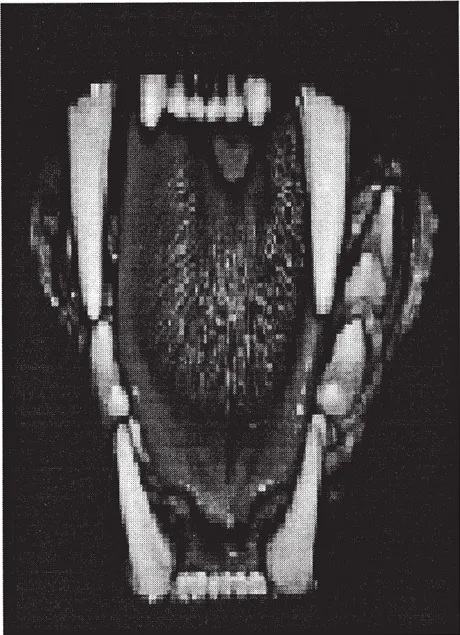
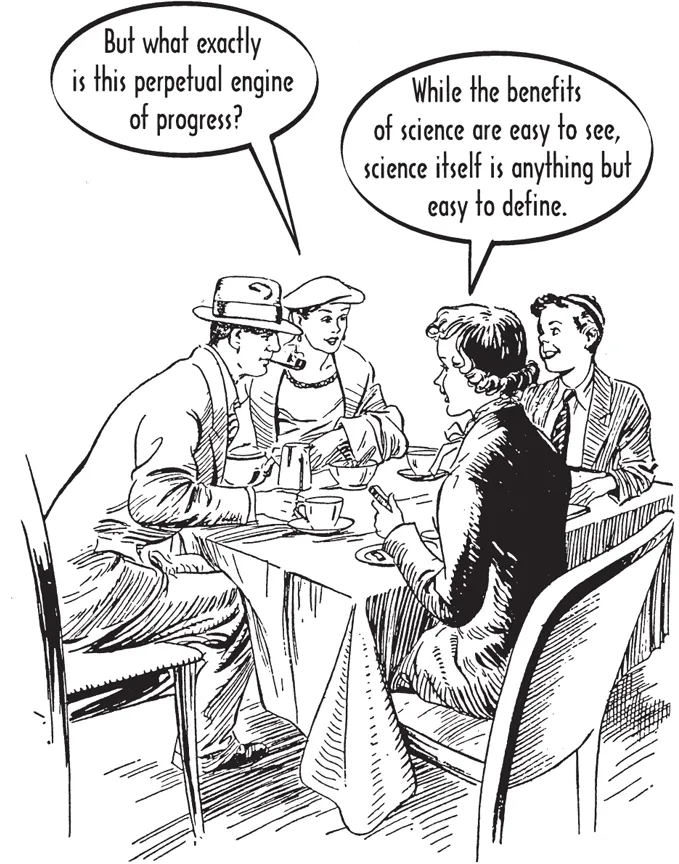
But what exactly is this perpetual engine of progress? While the benefits of science are easy to see, science itself is anything but easy to define.
Is Science “Absolute Objectivity”?

Until quite recently, Western tradition saw science as the quest for objective knowledge of nature and reality. Scientists were regarded as quasi-religious supermen, heroically battling against all odds to discover the truth.

And the truths they wrestled out of nature were said to be absolute … … objective, value-free and universal.
As one sociologist in the 1940s described it, science reflects the character of nature itself: “The stars have no sentiments, the atoms no anxieties which have to be taken into account. Observation is objective with little effort on the part of the scientist to make it so.”

Or, as J.D. Bernal (1901–71), the radical historian of science, put it …
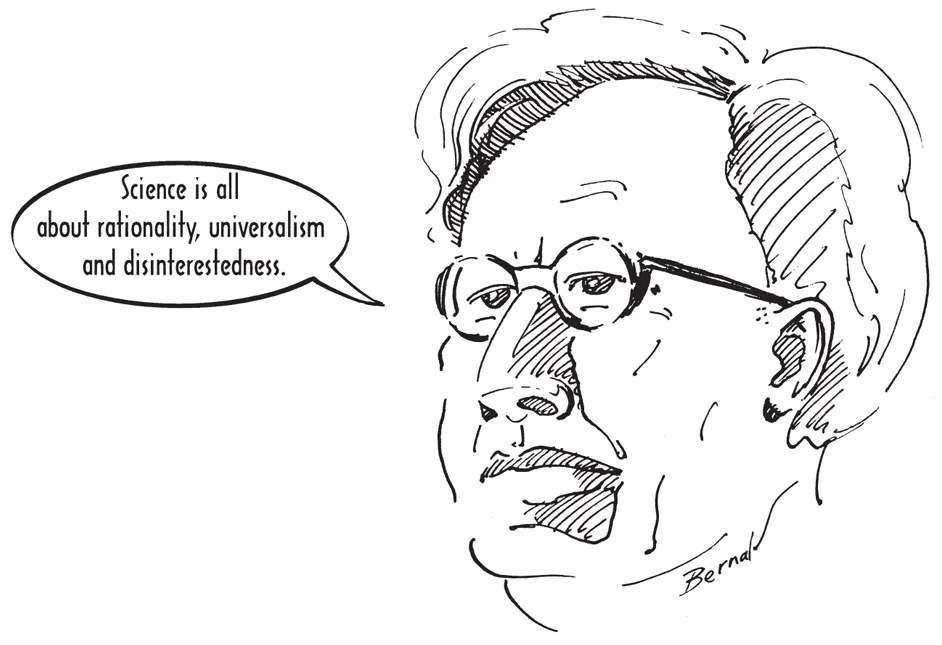
Science is all about rationality, universalism and disinterestedness.
Do We Trust Scientists?

But this picture of truth-loving and truth-seeking scientists working for the benefit of humanity is rather at odds with the public conception of science and scientists. Most people are not “anti-science”. We recognize the potential that science has for making our lives healthier and easier.
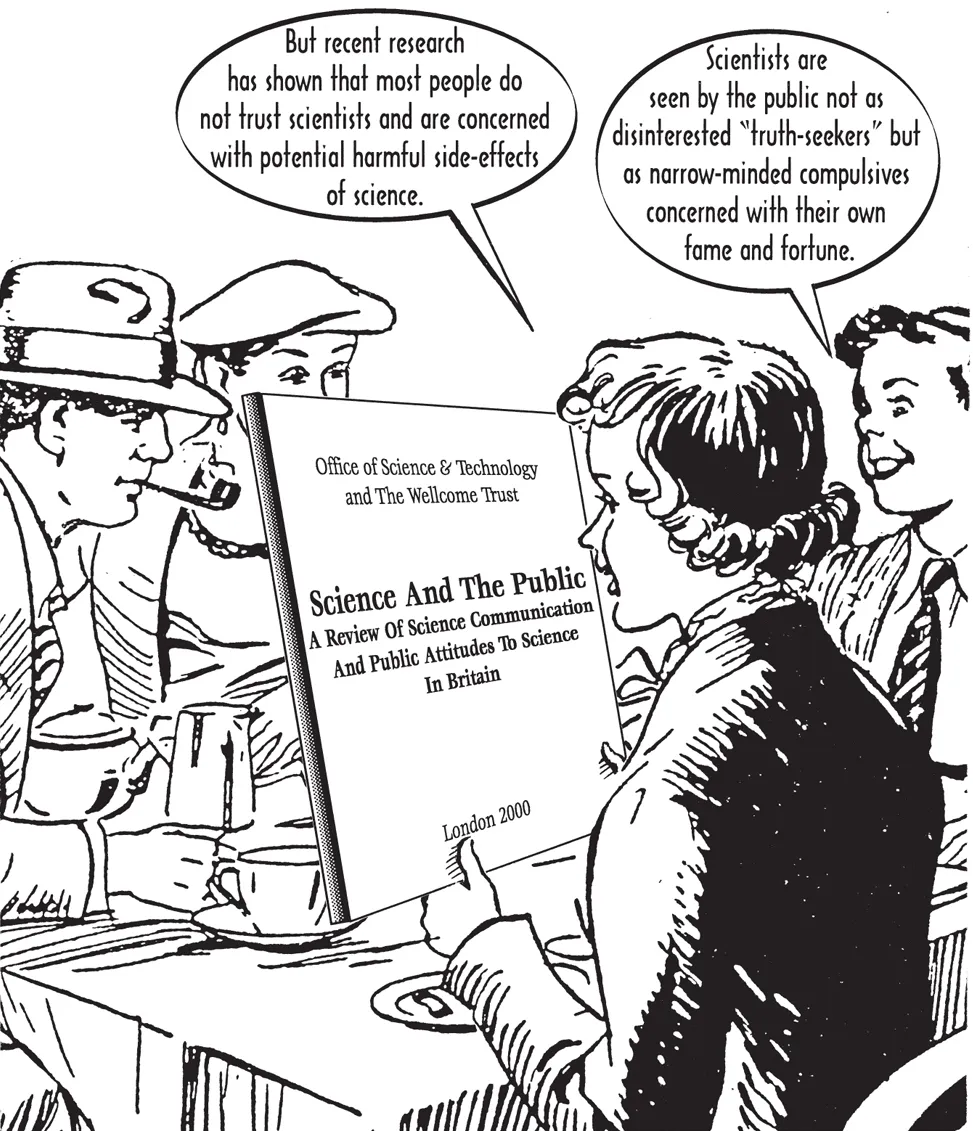
But recent research has shown that most people do not trust scientists and are concerned with potential harmful side-effects of science. Scientists are seen by the public not as disinterested “truth-seekers” but as narrow-minded compulsives concerned with their own fame and fortune.
The view of the scientists we find in popular literature and film is even more scathing.
Dr Henry Frankenstein of Mary Shelley’s Frankenstein (1818) is not the monster, but …
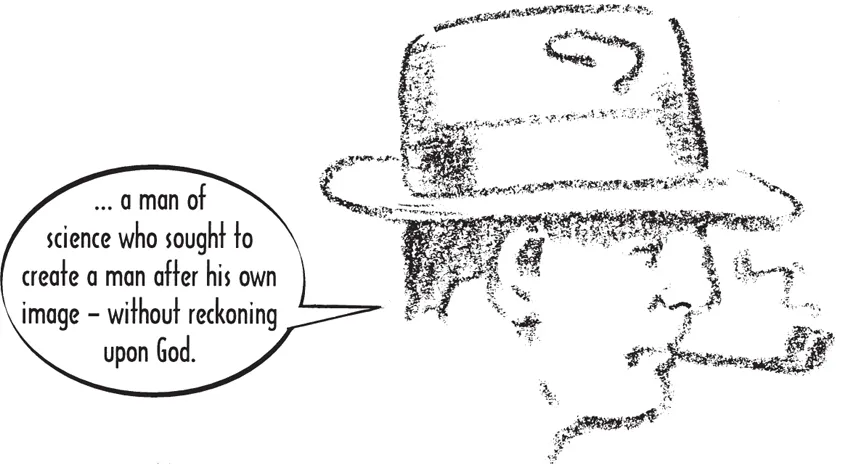
… a man of science who sought to create a man after his own image – without reckoning upon Gad.
In Robert Louis Stevenson’s Dr Jekyll and Mr Hyde (1886), Jekyll is a restless young scientist who discovers a concoction that turns him into his alter ego …

… the repellent and murderous and murderous Mr Hyde.
In H.G. Wells’ The Island of Doctor Moreau (1896), a scientist develops mutant life-forms that live in pain and misery …

… we violently revolt against out creator.
In the classic film Dr Strangelove (1964), the title character, played by Peter Sellers, is a paraplegic Nazi scientist …
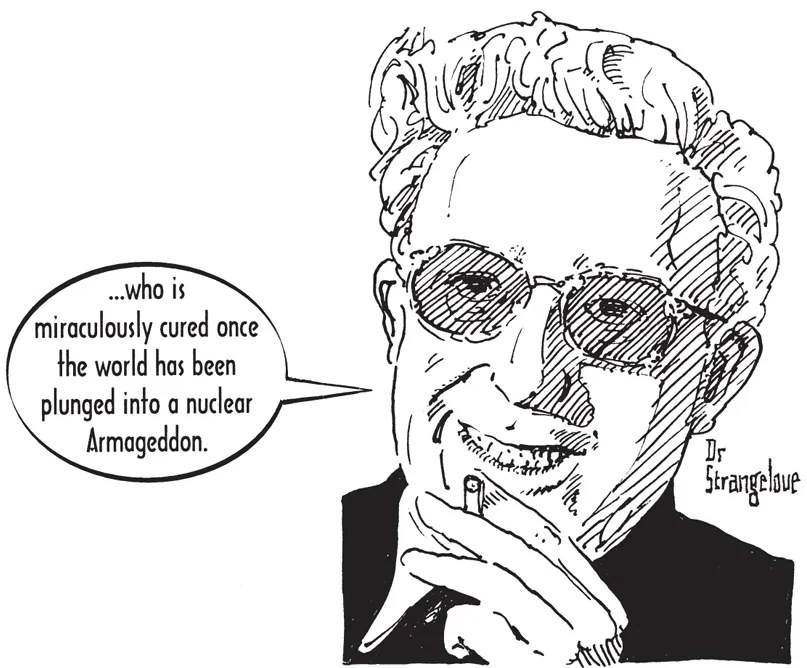
… who is miraculously cured once the world has been plunged into a nuclear Armageddon.
The Boys from Brazil (1978) shows scientists as evil Nazis hell-bent on recreating a race of Hitlers.

In Batman and Robin (1997), both villains are scientists:

…the evil Mr Freeze… …and the misguided Miss Poison Ivy.
Why do the popular perceptions of science and scientists differ so radically from the scientists’ own self-image as brilliant pioneers deserving of admiration, funding and blind trust? Perhaps because, apart from bringing benefits, science has also posed serious threats to humanity.

Science has given us the bomb, as well as biological and chemical weapons of mass destruction. It introduced the spectre of eugenics and has brought us to the brink of human cloning.
The by-products of science, such as nuclear waste and chemical pollution, are destroying ecosystems on local, regional and global scales. So, science brings us benefits as well as costs. Perhaps it was in an effort to present a more deflated image of science that the Nobel Prize physicist Lord Rutherford (1871–1937) said:
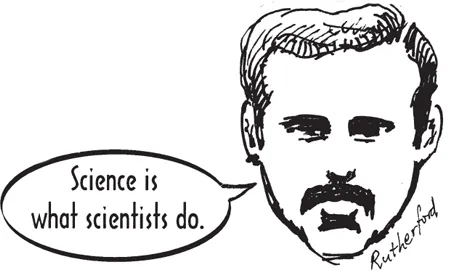
Science is what scientists do.
What Do Scientists Actually Do?

Here are some examples of the negative things that scientists actually do, as reported by the media.
The Indep...